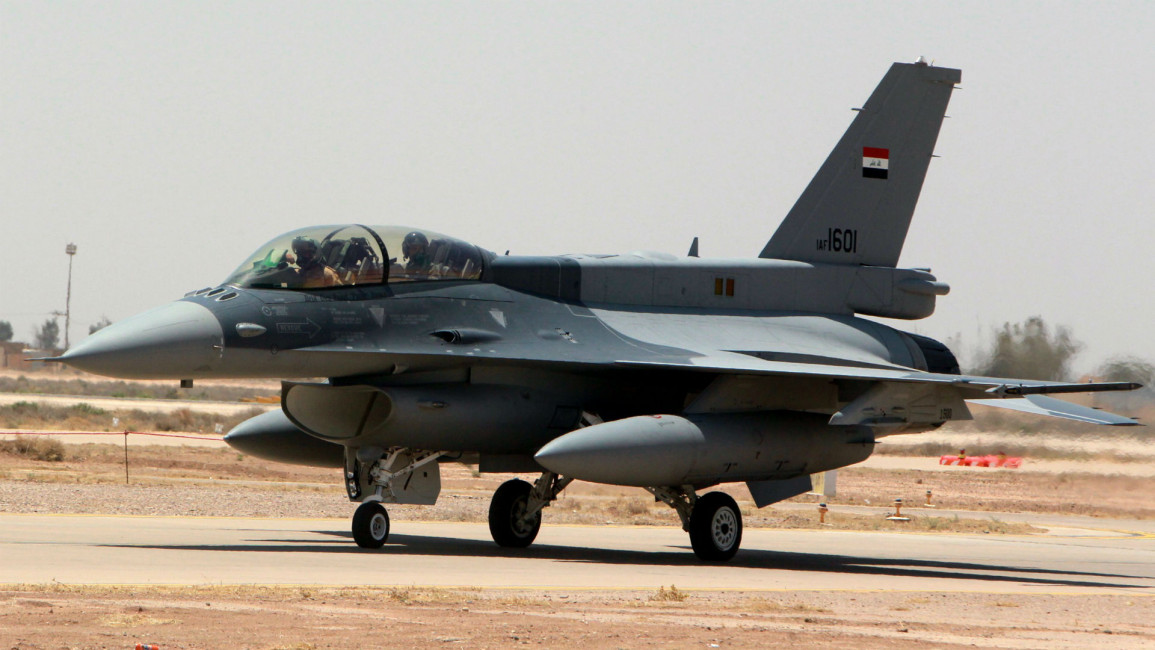Iraqi airstrike destroys Islamic State 'operations room' in Syria
A number of militants, who were planning cross-border attacks, according to Iraq’s military, were killed after F-16 fighter jets bombed a site where a meeting was taking place.
“According to intelligence, those terrorists who were killed were planning criminal operations using suicide vests and intended to target innocents in the next few days inside Iraq,” the military said in a statement.
Iraq's air force has carried out several strikes on IS-held territory in Syria since April, including one targeting "the headquarters of IS terrorist gang leaders" in Hajin on 24 May.
The following day Iraq released a video showing a strike on a huge building surrounded by palm trees and a wall which then collapsed.
IS fighters swept into Iraq in the summer of 2014, taking control of nearly a third of the country. At the height of the group's power its self-proclaimed caliphate stretched from the edges of Aleppo in Syria to just north of the Iraqi capital, Baghdad.
With its physical caliphate largely destroyed, the Islamic State movement is transforming from a "proto-state" to a covert "terrorist" network, "a process that is most advanced in Iraq" because it still controls pockets in Syria, according to a UN report.
The report, penned by UN experts, said the Islamic State group still may have up to 30,000 members roughly equally distributed between Syria and Iraq, and its global network poses a rising threat.
It said that despite the near-defeat of IS in Iraq and most of Syria, it is likely that a reduced "covert version" of the militant group's "core" will survive in both countries, with significant affiliated supporters in Afghanistan, Libya, Southeast Asia and West Africa.
The estimate of between 20,000 and 30,000 members includes "a significant component of the many thousands of active foreign terrorist fighters," it said.
While many IS fighters, planners and commanders have been killed in fighting, and many other fighters and supporters have left the immediate conflict zone, the experts said many still remain in the two countries — some engaged militarily "and others hiding out in sympathetic communities and urban areas.”
The experts said the discipline imposed by IS remains intact and IS leader Abu Bakr al-Baghdadi "remains in authority" despite reports that he was injured.
"It is just more delegated than before, by necessity, to the wider network outside the conflict zone," the experts said.
The flow of foreign fighters to IS in Syria and Iraq has come to a halt, they said, but "the reverse flow, although slower than expected, remains a serious challenge."
Follow us on Twitter: @The_NewArab


![President Pezeshkian has denounced Israel's attacks on Lebanon [Getty]](/sites/default/files/styles/image_684x385/public/2173482924.jpeg?h=a5f2f23a&itok=q3evVtko)



 Follow the Middle East's top stories in English at The New Arab on Google News
Follow the Middle East's top stories in English at The New Arab on Google News


